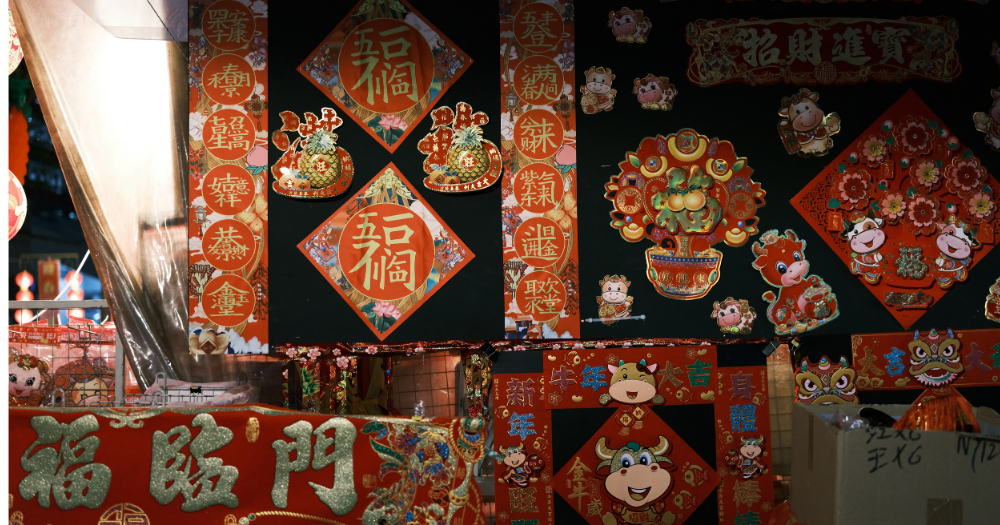Follow us on Telegram for the latest updates: https://t.me/mothershipsg
The Chinese Lunar New Year (农历新年) is a time where Chinese people in Asian countries wear clothes that are as loud as the music that gets churned out this time of the year.
And the first song that comes to mind when CNY rolls around is Gong Xi Gong Xi (恭喜恭喜).
However, for those with a ear for things, you might have noticed that Gong Xi Gong Xi always sounded a tad ominous.
The main reason is because it is written in the minor key -- where the general rule of thumb for music is that anything in minor sounds sad and anything in major sounds positively jubilant.
So why was Gong Xi Gong Xi written in the minor key if it is a song about the arrival of spring?
Well, because Gong Xi Gong Xi was never meant to be a Chinese New Year song and the spring that was referenced relates to the end of death and destruction on a global scale.
This mind-bending factoid has been brought to light by both Xiaohan, a prolific lyricist for Chinese artistes in a blog post for OMY [OMY is now defunct], as well as another article in English by thepiano.sg.
And then suddenly, everything kind of makes sense in this new context.
The end of WWII
Apparently, Gong Xi Gong Xi was written in Shanghai in 1945 to celebrate the defeat of Japan and the liberation of China at the end of the Second Sino-Japanese War (World War II).
The composer was Chen Gexin (陳歌辛), who wrote the music and words of the song, and who also went by pen names Lin Mei (林枚) and Qing Yu (慶餘).
He was jailed by the Imperial Japanese Army for his patriotic songs during the war.
The war and all its atrocities committed during that time might have had a profound impact on Chen, which influenced his music.
Things took an odd turn as the Mandarin title sounded like a Chinese New Year greeting and the song celebrates the arrival of spring.
It quickly became a part of Chinese New Year celebrations and remained a part of the season's repertoire of music.
An early recording of the song was by Yao Lee and her brother Yao Min, a famous singer.
Here's a YouTube video of a rare recording by the duo:
One of Yao's best known hits was Rose, Rose, I Love You (玫瑰玫瑰我愛你), also written by Chen Gexin.
A sampling of the lyrics in English:
Everywhere on the streets,
The first phrase from people's mouths
When meeting is congratulations.
Congratulations, congratulations, congratulations to you
Congratulations, congratulations, congratulations to you
The winter has come to an end.
What good news!
The warm breeze of the spring
will wake up the earth.
Congratulations, congratulations, congratulations to you
Congratulations, congratulations, congratulations to you
H/T OMY
Related article:
This is how sad S’pore National Day Parade songs sound when played in a minor key
Totally unrelated but follow and listen to our podcast here
Top photo by Galen Crout via Unsplash
If you like what you read, follow us on Facebook, Instagram, Twitter and Telegram to get the latest updates.
